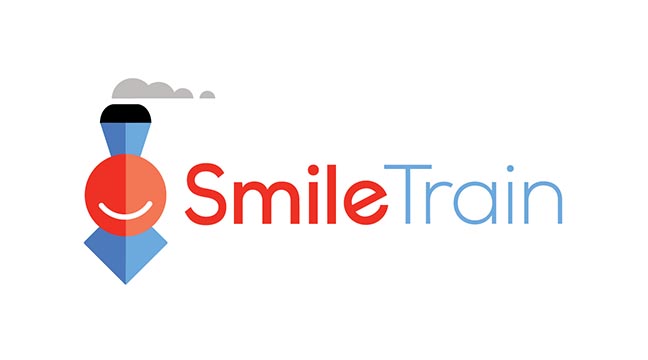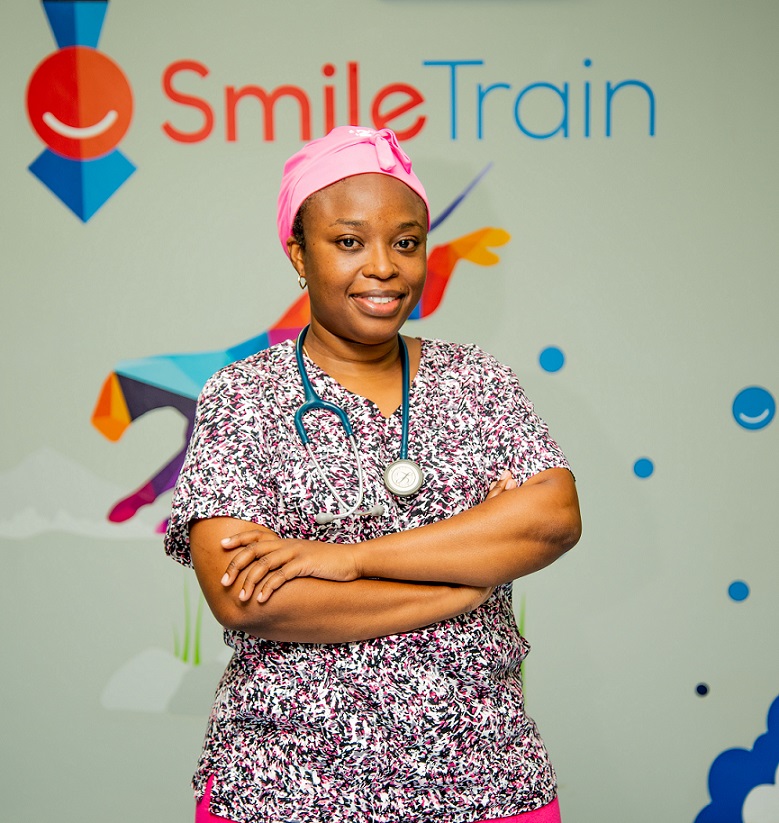
FOR IMMEDIATE RELEASE
WITH PICTURES
JANUARY 31, 2022
Dr Mildred Nakazwe: Reconstructing lives

Approximately 5 billion people in low- and middle-income countries lack access to safe, timely and quality surgical and anaesthesia care. Smile Train offers scholarships to qualified surgeons to provide quality surgical care in local communities
Lusaka, Zambia: When Dr Mildred Nakazwe joined the medical fraternity she never expected that she would ever get the chance to pursue her true passion – plastic surgery – because the highly specialised skill was not taught in the country.
It was during her residency that she would witness first-hand the affliction of women who had undergone mastectomy. The experience fanned the flames of her deep-seated compulsion to help others, and she decided to take steps that would give her the best chance of getting into reconstructive surgery if the opportunity presented itself.
“During my internship, I went to the cancer ward at UTH to review a patient and I saw women buying padded bras to wear after mastectomy,” Dr Nakazwe recalled.
“It was then that I felt the need to do something that would enable me to provide breast reconstruction to post-mastectomy patients. Later, when I went for my Master’s, I got interested in burn care and started attending workshops on burns and reconstructive surgery to try and find ways to improve treatment for burn victims in Zambia. The workshops exposed me to more conditions requiring plastic surgery, as well as other plastic surgeons in Africa and thus my interest grew further,” she narrated.
Unbeknown to her at the time, a casual conversation with a colleague about her ambition to work in plastic surgery would set the wheels of her greater calling in motion. During her studies, she applied for a grant to Women in Surgery Africa, a membership that provides support to female surgeons, to attend the 3rd annual East Africa Regional Training in Reconstructive Surgery and Perioperative Care conference in Uganda. It was at that conference that she learnt of the Smile Train sponsorship for those interested in plastic surgery.
“My colleague told me about Smile Train surgical camps at Beit Cure [Hospital], I then googled them and learned that their primary aim was to provide cleft care to children born with cleft lip and/or palate.”
Dr Nakazwe returned to Zambia and four months after writing her final Master’s exams, she saw a notice posted in the Surgical Society of Zambia WhatsApp group about a scholarship being offered by Smile Train for those interested in doing a fellowship in Plastic and Reconstructive Surgery with COSECSA. She decided to apply and was awarded the scholarship.
Her passion for the field is evident as she goes on to share the importance of surgery and its impact on people’s lives.
“Surgical care transforms lives; it restores human function and saves lives. Surgical care in cleft patients not only transforms the lives of the patients but of the family as well,” she explained.
“The parents are usually distraught when a child is born with a cleft lip because they are worried about feeding and what their community will think of them. Therefore, surgical care does not only include the operative part but also counselling parents and/or caregivers on the condition, importance of feeding and reassuring them that it can be corrected surgically. Creating an environment where they see other children pre and post cleft repair is also important part of their counselling.”
Dr Nakazwe obtained her medical degree in 2010 from the University of Zambia (UNZA), after which she was attached to the University Teaching Hospital (UTH) for her residency.
She is currently working as a registrar in the Plastic Surgery Unit in the department of surgery and pursuing a fellowship in Plastic and Reconstructive Surgery under the College of Surgeons of East, Central and Southern Africa, which she will complete in 2023.
When asked what she enjoys the most about providing this care to patients, she emphasises that the best part about cleft lip repair is seeing the care givers’ reaction when the baby is handed back to them after the operation.
“Their joy is priceless and makes every minute of the operation worth it,” the teary-eyed surgeon notes.
As a parting word of advice to others who want to pursue this line of specialisation, Dr Nakazwe explains: “Plastic surgery allows you to see instant outcomes in your work. Your focus should not be financial gain. Plastic and reconstructive surgery is an art, and you need to love what you are doing for you to grow. If your desire is to transform lives and have true job satisfaction, then plastic and reconstructive surgery is the career to choose. The rewards are worth it.”
Research indicates that approximately 5 billion people in low to middle income countries lack access to safe timely and quality surgical and anaesthesia care, 1.7 billion of them being children. 33 million people collapse under the astronomical burden of surgical expenses.
Smile Train is the world’s largest cleft-focused organisation, with a model of true sustainability — providing training, funding and resources to help medical professionals in more than 70 countries provide home-grown free essential cleft lip care and surgery. In Afirca, Smile Train has active programs in 40 countries, providing life-changing surgeries to over 120,000 patients with cleft.
Smile Train’s partners in Zambia include the Ministry of Health, Beit CURE, the University Teaching Hospital, Lusaka Orthopaedic Rehabilitation Education Trust (LORET), Kids OR and others to equip hospitals, train healthcare professionals, identify patients for surgery, and raise awareness of cleft.
Smile Train has supported more than 1.5 million cleft surgeries worldwide since 1999.
-Ends-
About Smile Train
Smile Train is the world’s largest non-profit organisation dedicated to facilitating treatment of cleft lips and palates, mainly in children, and raising awareness of the condition.
In Zambia Smile Train partners with Kids OR, Beit CURE, the University Teaching Hospital, the Ministry of Health and others to equip hospitals, train healthcare professionals, identify patients for surgery, and raise awareness of cleft.
For media inquiries, please contact: Gillian Langmead at Langmead & Baker Ltd
+260 979 060705
info@langmead.com
